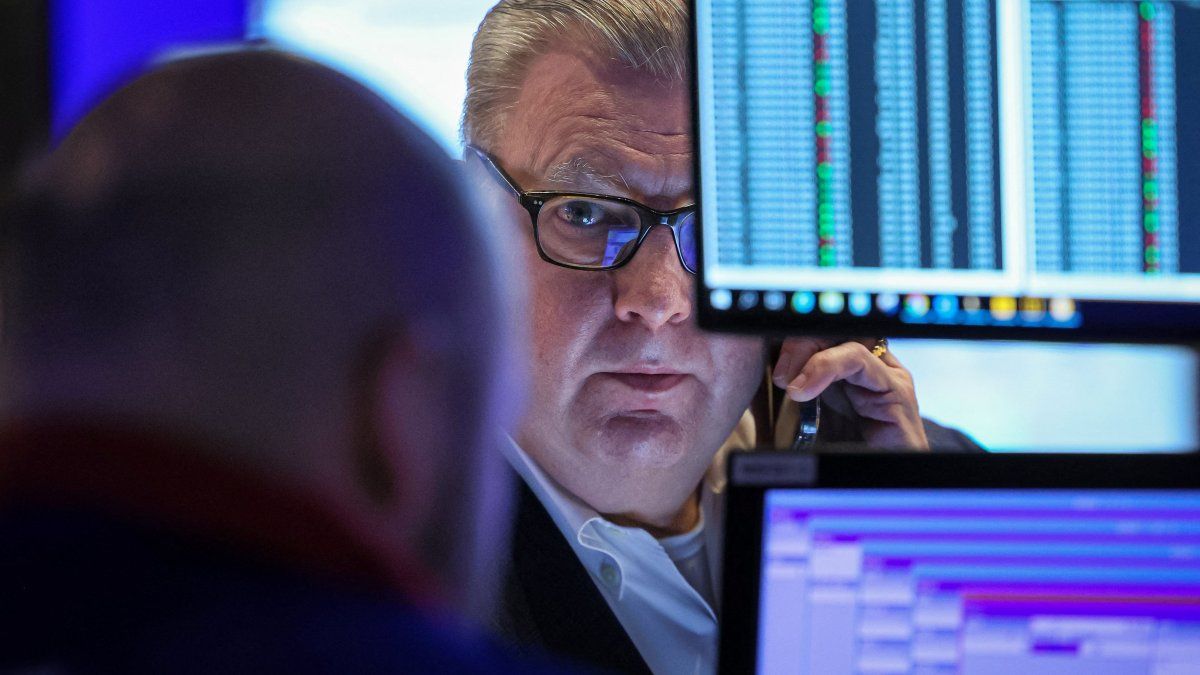In this context, the Dow Jones Industrial Average rose 0.3% to 40,861.71 points; the S&P 500 rose 1.07% to 5,554.13 points and the Nasdaq Composite appreciated 2.1% to 17,395.53 points.
Inflation undermines expectations that the Fed will cut 50 basis points
U.S. consumer prices rose 0.2% on a monthly basis in August, matching the rate in July, but the core figure accelerated slightly, potentially reducing the chances of a slowdown in the economy. The Federal Reserve is expected to introduce a more aggressive interest rate cut at its next policy meeting.
The monthly US consumer price index met economists’ expectationsalong with the annual figure, which slowed to 2.5% from 2.9% in July.
Meanwhile, core consumer prices, which exclude more volatile items such as food and fuel, rose 0.3% on the month, faster than estimates of 0.2%. On a year-over-year basis, the reading was 3.2%, in line with forecasts and matching the pace in July.
“The August CPI data muddies the waters somewhat when trying to assess the persistence of the current disinflationary trend,” said Jefferies Investment Bank, maintaining its forecast for a 25 basis point cut at the September meeting.
The odds of a 50-basis-point cut fell to 16% from 34% the previous day, and the market now expects an 84% change from a 25-basis-point cut at the September meeting, up from 66%.
US inflation.jpg
The odds of a 50 basis point cut fell to 16% from 34% the previous day.
The Economist
Trump-Harris debate offers few economic details
The Republican presidential candidate Donald Trump and current Democratic Vice President Kamala Harristraded views in a heated debate on Tuesday, clashing over everything from immigration to the economy.
On the debate stage, Harris took aim at Trump’s policy of imposing steep tariffs on foreign goods, arguing that it would actually be a tax on the middle class. Trump defended the plan, saying it would not lead to higher prices for Americans and attacked Harris for overseeing a period of high inflation during the Biden administration’s tenure.
However, analysts at TD Cowen argued that this was “not a debate about economics”“We did not have substantive discussions on key economic issues, including whether the White House should play a role in setting interest rates or how tariffs might affect inflation and economic growth,” the analysts said in a note to clients.
The odds were in favor of Harris immediately after the debate.and the odds of the incumbent vice president winning the election rose to 56% from 53% before the event, according to data from online prediction market PredictIt cited by Reuters.
The collapse of the defeated?
The shares of the company of Republican candidate Donald Trump, Trump Media & Technology Group, fell 11% on Wednesday in a busy session as the odds of a victory by Democratic candidate Kamala Harris increased after a combative presidential debate.
Harris put Trump on the defensive with a series of attacks on his fitness for office, his support for abortion restrictions and his myriad legal troubles, prompting a visibly angry Trump to deliver a series of responses riddled with falsehoods.
Trump has a stake of more than 50% in Trump Media & Technology Group, which has a market value of $3.7 billion. Its shares are popular with retail traders and sensitive to the former president’s chances of victory in the 2024 election.
The company’s shares have fallen by almost 60% since mid-July.as the Democratic Party’s chances improved against Trump after Harris replaced President Joe Biden as the US presidential candidate.
Bank stocks in a maze
The US bank stocks fell in early trading on Wednesday, extending losses triggered by warnings of a slower-than-expected recovery in investment banking and an expected hit to interest income from looming rate cuts. They recovered as the hours passed
The Banking executives this week tempered investor hopes amid a widely expected interest rate cut by the Federal Reserve and persistent concerns about the economy.
“Investors are trying to reconcile some moving parts that are both bullish and bearish,” said David Wagner, portfolio manager and equity analyst at Aptus Capital Advisors.
“Rate cuts are expected to compress NII (net interest income), but lower rates are also supposed to help boost spending. So a tug-of-war has begun to see if growth can insulate the NII compression.”
JPMorgan led the declines on Tuesday with a 5.2% drop after Chief Operating Officer Daniel Pinto said “that forecasts for 2025 net interest income (NII), or the difference between what the bank earns on loans and pays on deposits, were too optimistic.”
Higher rates had boosted banks’ lending income, but monetary policy easing would lead to smaller-than-expected increases.
Morgan Stanley The company also forecast modestly lower interest income in the third quarter, and Chairman Dan Simkowitz noted that mergers, acquisitions and initial public offering activity will remain below trend for the remainder of the year.
JPMorgan gained 0.8%, Morgan Stanley 0.9%, Goldman Sachs 0.7%, Citigroup fell 1.3% and Wells Fargo 0.36%.
Source: Ambito
I am an author and journalist who has worked in the entertainment industry for over a decade. I currently work as a news editor at a major news website, and my focus is on covering the latest trends in entertainment. I also write occasional pieces for other outlets, and have authored two books about the entertainment industry.




